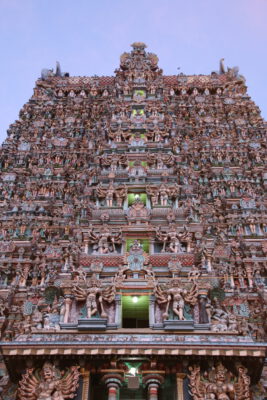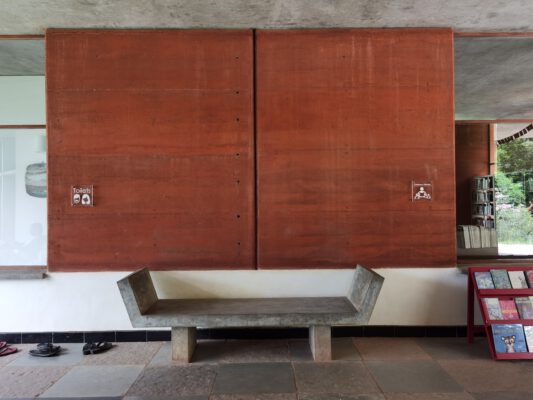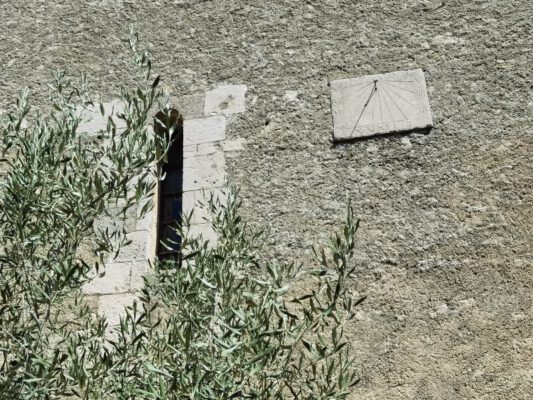Aber Hitler built the autobahn! I've been hearing that more and more often lately. It's difficult to continue here because a certain argument, which I find very important, is quite complex and is rejected by people who want to relativize fascism and the Holocaust. The argument, which was suggested by Adorno, is: No more poems can be written after Ausschwitzt. It goes roughly like this:
- The scale of the horror of the Holocaust is so great that we as individuals and as a society must ask ourselves what made it possible.
- Unfortunately, atrocities have occurred again and again in history and almost everywhere. Is there anything that makes the Holocaust seem unique in its horror?
- One thesis is that the technical precision of the extermination camps was born out of a spirit of rationality. It is not mass murder out of anger, revenge, lust for power, hatred etc... but a 'technical operation' in which responsibilities were shared and most wanted to believe that they were simply doing their job.
- The question that arises from this is whether rationality itself is morally blind and cruel.
- If rationality can turn against humanity, then it must be fundamentally and thoroughly questioned, and until this questioning is complete, we cannot continue as the project of modernity suggests.
- We have to question everything, including poetry (and the highways).
One project proposed by the Frankfurt School in the 1960s was critical theory and, within it, negative dialectics. In reaction to Kant's strict category tables, Hegel had proposed a dialectical philosophy that did not see the spirit as bound to a fixed framework of principles and categories of pure thought, but as a force that was constantly developing out of itself. It is the human being who can manifest and express this movement of the spirit. The transition from Kant to Hegel is an important break in the history of Western philosophy. Questioning this step with new methods is the project of negative dialectics. Instead of synthesizing knowledge and enriching its complexity, negative dialectics attempts to preserve the complexity, but to reverse the synthesizing into a constant questioning: a critical theory. In this respect, critical theory is not so far removed from deconstructivism, even if the methods are very different: Critical theory takes a systematic approach, while deconstructivism is often associative, traces the unconscious, searches for structural parallels - similar to post-structuralism.
It becomes clear that this project is important when we look at other 'achievements', such as the dropping of the Hiroshima bomb, or the development of AI. The argument can be applied to the core question of the philosophy of science, namely the question of the ethical responsibility of science. Karl Popper continued to pursue this project.
Beyond rationality
Modernist thought, from Kant to the Frankfurt School, is characterized by a scepticism towards speculative, intuitive, spiritual and mystical forms of knowledge. Rationality is the sword with which everything that does not submit to its logic is decapitated. But like a hydra, this only creates new faces, other 'irrationalities'. For example, there is a difference between credulity and spiritual thinking. There is a difference between intuition and gut feeling.
The Western way of thinking has relied too much on the rational mind. The dimensions of life, consciousness and spirituality are subordinated to it as projects 'yet to be enlightened'. It is now clear to me that the project of negative dialectics must go much further. It must open the doors to our other ways of being. However, I question whether negative dialectics is the appropriate means here, because in Adorno's work it withdraws into an aesthetic theory. It can accompany thinking a little way on the journey, but the path will quickly branch out.
But it is one of the paths that led me to the wisdom of ancient writings. This 'pre-modern' thinking is richer and more complex. It draws different boundaries. The focus is not on logic, but on consciousness, God, soul, nature, community, etc... These are concepts that are anchored on other levels of our existence. They are often intertwined. In the Vedas there are 7: matter, breath, spirit, ideal knowledge, bliss, consciousness and pure existence. When will we learn again that our humanity cannot be reduced to algorithms, do we really have to enter into a battle with AI first?
Sometimes I wonder if there is a parallel between the idea of the Big Bang and the appearance of the human spirit. For just as the Big Bang did not appear out of matter, but out of vibration, i.e. consciousness, the human spirit appeared as embedded in cosmic thinking, worlds of gods, honoring life. The cave paintings of Chauvet bear witness to this. And just as the material cosmos is moving towards cold death, the human spirit is differentiating itself into individual disciplines that forget about being human.
One possible answer to this fundamental crisis of the mind is Sri Aurobindo's integral philosophy: the synthesis of the yogas.
-







